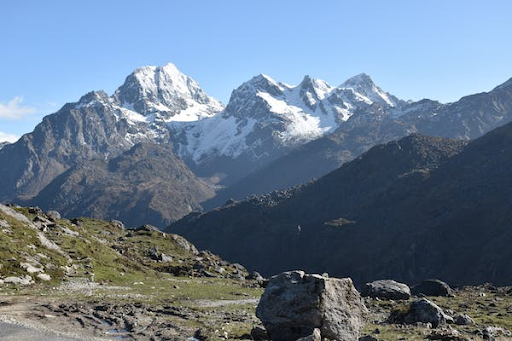The Understated Effects of Altitude Sickness

(Photo Source: PEXELS)
January 22, 2023
A humbling headache, a throat consumed with sharp dry pains, and debilitating fatigue. These symptoms seem like an average sickness, maybe it might be the flu or a bad cold. However, all of these symptoms are caused by an incredible altitude.
Background
Last week I traveled with my family to Colorado. Denver International Airport is a mile high, or 5250 feet in elevation. From Denver, we traveled to the city of Frisco, deep in the rocky mountains of Colorado. Frisco is 9000 feet in elevation, about twice the height of Denver.
After spending the night in Frisco the elevation begins to take a toll on your body. The day before you’re at sea level, then you’re nearly two miles higher within 24 hours. The rapid change in elevation makes your body feel immensely sick.
The first two days my body was struggling. The air is thin, therefore, you’re always out of breath. When you wake up your body is fatigued, dry, and aching.
The Effects of Altitude Sickness
Altitude sickness, also called acute mountain sickness, is the physical distress from difficulty adjusting to oxygen pressure at high altitudes.
The effects of Altitude Sickness:
- Dizziness
- Weakness
- Nauseous
- Headaches
- Shortness of breath
- Loss of appetite
In conjunction with the rocky mountains of the western United States, the air is usually immensely dry, therefore, a sore throat is also common.
The Understatement
The effects of altitude sickness are severely understated when traveling from sea level. If you travel for your first time to the mountains, make sure you are prepared.
It is especially the magnitude of the change in elevation, many people don’t realize that they’re going to be 2 miles in the sky from where they begin, and that hurts your body.
It’s important to be prepared and don’t expect to be full of energy and explore for the first day or two.
Solutions
They’re a few different tools and techniques that can help your body with the change in altitude.
Hydration is one of the most important forms of helping your body adapt to the elevation. At higher elevations, your body requires more oxygen, therefore, it gets dehydrated more quickly.

To help stay hydrated you can buy hydration tablets and liquid IVs, which when paired with water, add much-needed electrolytes and sodium for your water.
Another tool you can use is supplemental oxygen. Yes, for only Colorado.
In nearly every store you can find they will sell small oxygen tubes you can use when it’s hard to breathe, and they’re very helpful.
It’s important to stay fit and healthy so you can get the most out of your vacation.
Some people get affected by altitude worse than others, usually relating to their physical and aerobic fitness.










